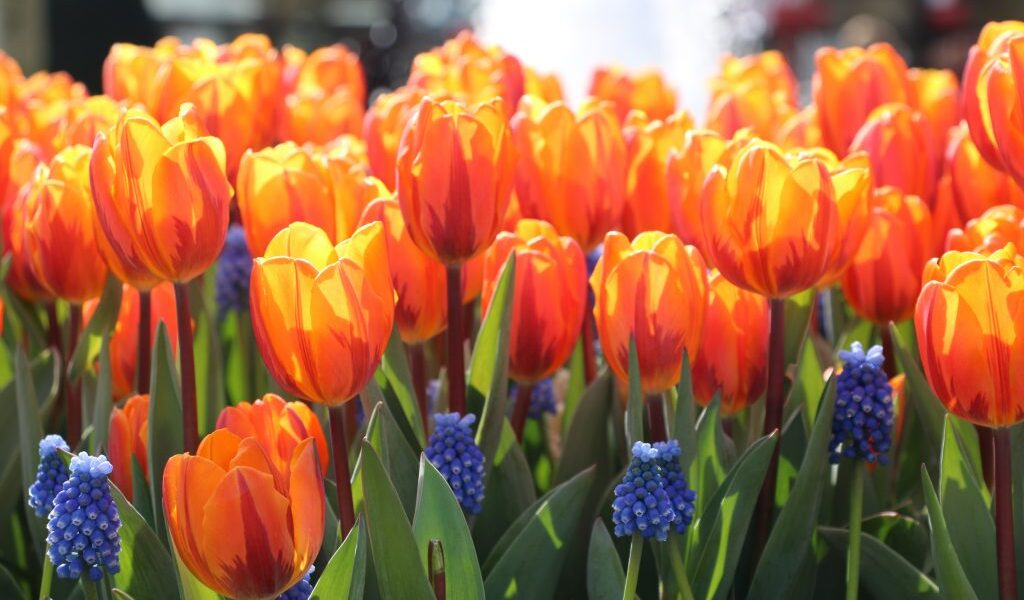At TVE we have an interesting bunch of people from different countries, cultures and backgrounds but this isn’t a blog about diversity and inclusion; more just an interesting couple of observations from a Dutch person experiencing the recent Coronation and one of our UK team who was out in Amsterdam for the recent King’s day at the end of April. First from Joyce our Dutch correspondent:
“In the Netherlands, we have as many bank holidays as in the UK. One of them is Kings Day. Over the years that I lived in the UK, I have always tried to continue this celebration, by either planning a trip to the Netherlands with my (English) friends, wearing orange in the office, or having a drink in the Dutch pub in London with my colleagues. Each year people tend to ask me what we are actually celebrating and why we’re wearing orange. My response always is “It is the King’s Birthday and Orange is our colour”. Originally, it started by celebrating the Princesses’ Birthday but quickly it turned into a national holiday to celebrate togetherness and unity at the end of the summer holidays (end of August)… Which still falls on the birthday of Princess Wilhelmina who then later became Queen… which is where the name of the day came from. So it was Queen’s Day – until King William took the throne in 2014, and, obviously, it became King’s Day and they moved it to his birthday on the 27th of April.
On King’s Day, the Royal family will visit a city in the Netherlands to celebrate togetherness and unity. The family will get a touring celebration of the city. The rest of the Netherlands will be at a festival, on the canals in Amsterdam or in their hometown; at the flea market, but everywhere you go you will see Orange! This shows the togetherness during King’s Day.
In the years that I lived in the UK, there were various Royal Family celebrations. I was there for both Royal Weddings, Queens Jubilee, and now the King’s coronation. These Royal celebrations were ever so slightly different. For some reason with the King’s coronation, I was expecting a similar vibe to King’s Day, this might have been because King’s Day was the week before or because it felt like a celebration for the nation. This wasn’t the case though, yes, the Royal Family shared the celebration with the nation, but it was all from a distance. Maybe this is a reflection of the different Royal Families and a different approach between the UK and Holland… The UK is all about distance and reverence and the Dutch approach is more about closeness and informality. There are different safety concerns between the UK and Holland but the ability to have a chat with your King or congratulate him on the day, seems to be a comparative loss from an outsider looking in.”
Dan who lives and works in the UK noted his experiences in Amsterdam on King’s Day:
“What struck me about my time in Amsterdam, was that King’s Day is a celebration that comes around every year; yet from what I saw, it was celebrated and participated in with a gusto that showed no hint of boredom from the years of observing this customary celebration. In fact, it was the very opposite. As with most bank holidays, there was a strong sense of anticipation, but most noticeably a genuine expectation and acceptance that everyone would wholeheartedly participate.
Everywhere I looked on the streets of Amsterdam you saw a sea of orange. At first glance, it was hard to decipher ages, but as the King’s Day wore on in Amsterdam, I came to the realisation that it was every one of every age celebrating the day. While the day itself seemingly takes on different forms for everyone, all of the city are on the streets – whether thrifting for a deal, selling their ancient antiques, barbecuing on a barge, or dancing at a street party; everyone is interacting with the day.
As an Englishman, it felt natural to draw parallels between royal celebrations in the UK and King’s Day in the Netherlands. The first thing that jumped out to me is that British royal celebrations occur far more infrequently. Coronations, Royal Weddings, and Jubilees only occur a handful of times in a Briton’s lifetime, with far more gaps between their dates, whereas the Dutch celebrate King’s Day each year. My perceptions of the impact that regularity has on these infrequent royal celebrations are that while the spectacle of British celebrations is massive, the scale is more concentrated and so doesn’t stir the same engagement of citizens.
Whilst there are lots of people engaged with Royal celebrations in the UK, there are also comparatively a lot of people not very engaged, as celebrations don’t appear to spread throughout every street corner, in the same way, that King’s Day does across Amsterdam. This observation caught me by surprise, as the regularity of this type of celebration appears to have had a clear effect on the Dutch, who take notice year-in and year-out and participate wholeheartedly in the festivities. This is unlike in the UK, where for some, these infrequent celebrations can pass people by before they’ve fully registered the occasion’s presence.
What was made clear from my King’s Day experiences was that the Dutch celebration has moved beyond just capturing masses of attention and onto interactively engaging masses of people. In order to ever gain a similar level of comparative engagement in Royal celebrations in the UK, it may require a new annual Royal celebration (one can only hope for an additional bank holiday). Nevertheless, perhaps a lesson to be learned by not just the UK but also brands, more generally, is that a consistent presence can both capture attention and draw stronger engagement when audiences know to expect and anticipate a regular appearance.”


